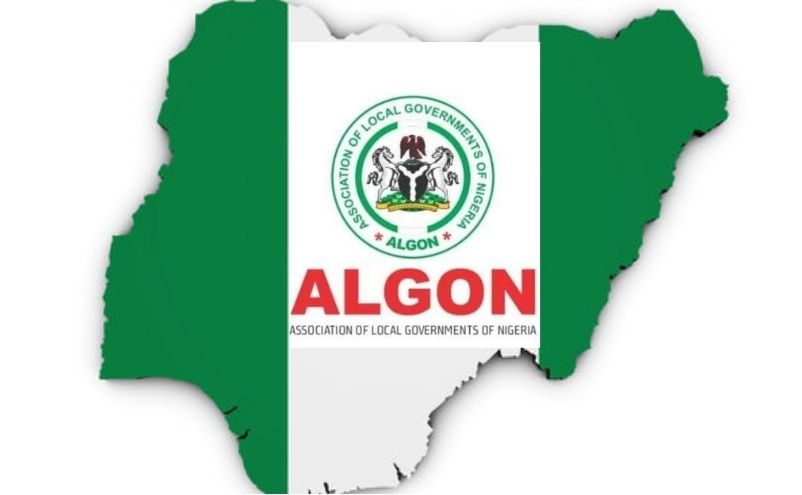Local government financial autonomy in Nigeria continues to suffer setbacks despite the Supreme Court’s ruling in favor of direct revenue allocation to local councils. While the verdict was expected to end state government interference and grant local governments control over their finances, fresh hurdles have emerged, delaying its implementation. The latest requirement by the Central Bank of Nigeria (CBN) for local governments to submit two years’ worth of audited financial records before receiving allocations directly is yet another roadblock in this ongoing struggle.
The core of the problem lies in the resistance from state governments, many of which have relied on controlling local government funds as a major source of political and financial influence. Historically, state governors have wielded significant power over local councils by managing the Joint State-Local Government Account, which has often resulted in funds being diverted or delayed, leaving LGAs struggling to fulfill their constitutional responsibilities.
Now, despite the supreme court’s decision, some governors are maneuvering through legislative loopholes to maintain their hold on council funds. According to a member of the inter-ministerial committee set up to enforce local government autonomy, “some governors are influencing Houses of Assembly to pass laws that grant states oversight over FAAC allocations to local governments.”
The federal government has demonstrated its commitment to enforcing financial independence for local councils. An inter-ministerial committee, chaired by Secretary to the Government of the Federation (SGF) Senator George Akume, has been tasked with developing frameworks for direct disbursements. The Accountant General of the Federation (AGF) has also confirmed readiness to implement the supreme court judgment by channeling funds directly to democratically-elected local councils. “We are set to begin disbursing allocations directly,” a senior official at the Office of the Accountant-General of the Federation stated.
A member of the committee revealed that a template is being developed to authorise the Accountant General of the Federation (AGF) to directly deduct funds designated for specific areas like primary education, healthcare, and other constitutional responsibilities of LGAs from their FAAC allocations and transfer them to the relevant agencies.
Members of the panel will be discussing the modalities for the enforcement of the apex court verdict that mandates direct disbursements of funds to the 774 local government areas from the Federation Account Allocation Committee (FAAC).
The committee, chaired by the SGF, has as members minister of finance and coordinating minister of the economy, Wale Edun; Attorney-General of the Federation (AGF) and minister of justice, Lateef Fagbemi (SAN); minister of budget and economic planning, Atiku Bagudu and the Accountant-General of the Federation (AG-F).
Others are: Central Bank of Nigeria (CBN) governor, Yemi Cardoso; permanent secretary, Federal Ministry of Finance; chairman, Revenue Mobilisation Allocation and Fiscal Commission (RMAFC); representative of the Nigeria Governors’ Forum (NGF) and representative of the local governments.
The AGF has concluded plans for the disbursement of funds to democratically elected councils in no time.
However, the new requirement for a two-year financial audit has cast doubts on the immediate commencement of direct allocations. Many local governments have not functioned as independent financial entities for decades, making it difficult for them to produce the necessary documentation in time for the next Federation Account Allocation Committee (FAAC) meeting. A source at the CBN noted that without a proper financial audit, the apex bank cannot open new accounts for the LGAs. “We need a clear picture of their financial health before we can facilitate direct disbursements,” the source explained.
While financial accountability is crucial, some observers argued that the sudden imposition of this requirement serves as a delay tactic that ultimately benefits the state governments that continue to control local government allocations. Critics questioned why such audits were not mandated earlier or why state governments, which previously handled LGA funds, are not being held accountable for past financial mismanagement. “For years, local government funds have been controlled by governors without proper oversight. Now, when LGAs are set to receive their rightful allocations, we are suddenly demanding audits. Who was auditing the funds when they were under state control?” asked a local government official in Lagos who wished to remain anonymous.
Beyond the bureaucratic challenges, there is also concern that some state governors may attempt to undermine the autonomy process by coercing elected local government chairmen and councilors into remaining politically loyal. “We are aware that some governors are trying to pressure local government leaders to resist autonomy in exchange for political favours,” a source in the enforcement committee disclosed.
If implemented successfully, financial autonomy for local governments could mark a turning point in grassroots development in Nigeria. Local councils are constitutionally responsible for primary education, healthcare, sanitation, and rural development. Direct access to funds would enable them to execute projects tailored to the needs of their communities without the delays and deductions imposed by state governments. “With direct allocations, we can finally prioritise local infrastructure, schools, and healthcare centers without waiting for approvals from state capitals,” said a local government chairman from the north-central region.
Highlighting the importance of local government financial autonomy in Nigeria, Development Economist at Adeleke University, Professor Tayo Bello, said, “No nation can achieve sustainable economic growth without strong local governments. They play a crucial role in agriculture, market regulation, and small-scale industrialisation, which are the backbone of rural economies in Nigeria.”
In the same vein, CEO, AntHill Concepts Limited, Dr. Emeka Okengwu, has noted that, “For Nigeria to unlock its full economic potential, we must empower local governments. They are the catalysts for rural development, providing critical services that enhance productivity, improve living standards, and attract investment.”
Also, small business owner in Abeokuta, Ogun State, Bimpe Onafowokan, stated, “We depend on local governments for market access, security, and infrastructure. If they are properly funded, small businesses like mine will thrive, leading to job creation and economic stability.”
A traditional ruler in Ogun State, Chief Olusegun Adebayo, cited that, “Our local governments must be strengthened to support economic growth. They are responsible for roads, sanitation, and local markets—all critical for a thriving local economy. If they function well, the entire country benefits.”
Nonetheless, autonomy alone will not guarantee efficiency or development. Even if local governments gain full financial control, issues of mismanagement, corruption, and inefficiency remain. The two-year audit requirement, while delaying immediate disbursement, also highlights the need for greater transparency in local governance. Experts said along with financial independence, strong accountability mechanisms must be put in place to ensure that funds are properly utilised. “Financial autonomy without financial discipline will not solve Nigeria’s development challenges. Local councils must be held to high standards of accountability and service delivery,” said Dr. Muda Yusuf, an economic analyst.
The battle for local government financial autonomy is far from over. While the supreme court has set the legal foundation, resistance from state governments, bureaucratic bottlenecks, and issues of financial accountability continue to slow down the process. The federal government must ensure that autonomy is not only achieved on paper but also translated into real benefits for local communities. Without decisive action, the struggle for financial independence at the grassroots level may drag on indefinitely, leaving local governments under the shadow of state control and depriving millions of Nigerians of the development they desperately need.





